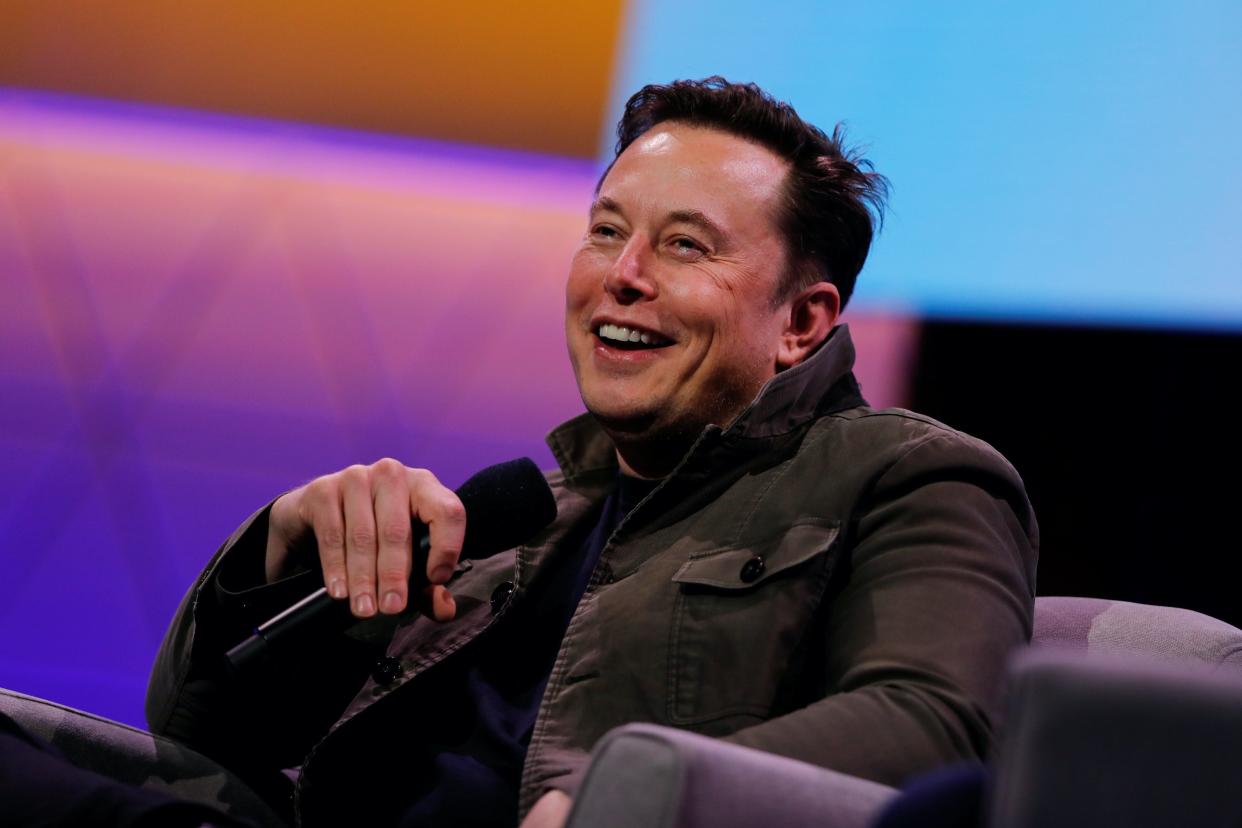Tesla's stock split should be a game-over moment for Wall Street bears

Mike Blake/Reuters
Last week, Tesla announced a 5-for-1 stock split, setting off a 20% rally for shares that were already at vertigo-inducing levels.
For bulls, it was a buying opportunity.
For bears, it was more bad news.
And for anyone wondering why Tesla is worth more than GM, Ford, FCA, and the VW Group combined, it was an education in how a negative thesis about a company can steadily fall apart.
Let's spend a little bit of time in a parallel universe that, believe it or not, actually exists.
Tesla is worth anywhere from $250 billion to $300 billion in market cap these days, after an epic rally that started at the beginning of the year, and is still going. It has logged swings in valuation as big as Ford's entire market cap, and bulls have gleefully noted that Tesla is now worth more than the entire Detroit Big Three combined — plus the VW Group.
Tesla also sold just over 367,000 vehicles last year — a record for Musk but nothing compared to Ford , which sold almost four times that many pickup trucks alone, in just the US.
A fundamental assessment of Tesla's business does not yield a $300-billion company. But a fundamental analysis of General Motors doesn't add up to $40-billion market-cap company, when you consider that has an enterprise value of $130 billion and has been posting an annual profit of about $10 billion every year since 2015. It's obvious that Tesla is currently wildly overvalued, while the entire traditional auto industry, which had been racking up pretty routine profits, pre-pandemic, is wildly undervalued.
Tesla's parallel universe, explained

Welcome to the parallel universe! It exists because the facts on the ground are indisputable. Tesla is indeed valued at stratospheric levels by investors, who think the company is either a great bet on an electrified transportation future — or a great place to park money in a low-yield world. And Tesla has indeed produced far fewer vehicles and generated far less revenue than its old-school competition.
A fair amount of bickering about this parallel universe has done nothing to make it go poof, returning us to a realm governed by proper business assessments. The bulls have kept on winning, and the bears have kept on losing.
The latest defeat came last week, when Tesla announced a 5-for-1 stock split. This kind of move changes nothing about a company's valuation, but does somewhat artificially reduce the stock price, opening up some opportunity for less flush buyers to come off the sidelines. It can bolster the confidence of established investors, encouraging them to hold what they have (now multiplied) and buy more and what to them might resemble a discount.
The upshot of the move was to push the Tesla rally another 20%.
Musk has needled short-sellers on plenty of occasions — Who could forget the satiny, red short-shorts that bore the Tesla lineup's initials (S-3-X-Y) and that sold out immediately? — but the stock-split was more like a dagger to the heart. Tesla has long been an appealing yet dangerous stock to short. Along with Apple, it's among the most heavily shorted in the market. A history of volatility has made the risk worth it, for intermittent rewards.
Götterdämmerung for short-sellers

Miguel Villagran / Staff Getty Imags
But long-term, the shorts have been screwed. Tesla has returned better than 6,700% since its 2010 IPO. It hasn't just beaten the market. It has created its own, alternative market, where the familiar rules don't apply and 20% gains come out of nowhere.
This is why I've argued, on several occasions, that it's pointless to short Tesla.
"It was a bad idea to short Tesla at $200, at $400, and even now at $900 or whatever," I wrote the last time I offered this advice — and I'll now see your $900 and raise you $1,700, divided by five. "The 'bleak, reactive counter-narrative' [my terms] that motivates Tesla skeptics has been thoroughly discredited. Find something else to wager your money on."
Or don't. The thing about this parallel universe is that while it's ruled by bulls, bears can't seem to stay away. I'll concede that over the next 12 to 18 months, something will surely knock Tesla's stock price off its near-vertical trajectory and vindicate some short-sellers' positions, depending on when they got in and how they' ve structured it. But the macro-trend is trend is moving north, as it has been for the past five years.
But why? Clearly, Tesla is a stock that's fueled by a narrative, and by Musk's charisma, and by a historical moment when there's a lot of money sloshing around in search of market-beating returns. But that's not parallel-universe thinking.
In the alternative reality of Tesla — which isn't an alternative because we're really living in it — people both love the product and love the brand. That's what the elevated stock price, so out of whack with the business, represents. And that's why it game-over for the bears.
I shouldn't have to say it, but love conquers all.
Read the original article on Business Insider


